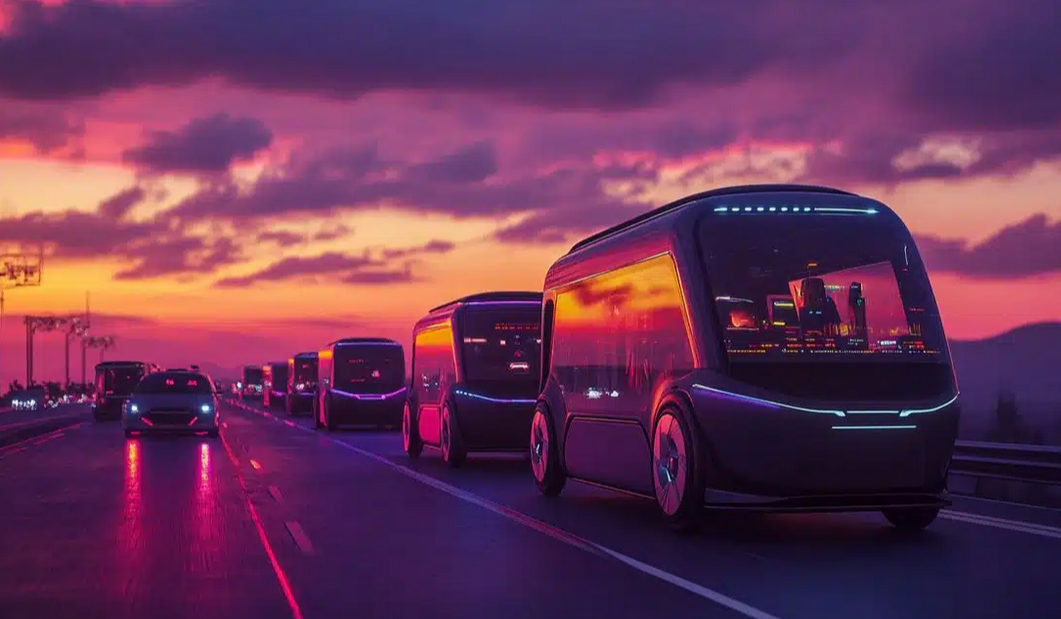Meta, the parent company of Facebook, has hit an unexpected roadblock in its ambitious plans to build a nuclear-powered data center in the United States. A rare species of bee discovered at the proposed site has forced the tech giant to pause construction and reassess its strategy. This unusual environmental complication underscores the challenges tech companies face when balancing innovation with ecological responsibility.
According to the Financial Times, the presence of the protected bee introduces regulatory and environmental hurdles that could delay or even derail the project. While Meta has not revealed the exact location of the nuclear facility or the identity of the nuclear energy provider, the setback highlights the delicate interplay between cutting-edge technology and environmental stewardship.
Meta’s Vision for a Nuclear-Powered Data Center
Meta had envisioned its nuclear data center as a groundbreaking step in clean, high-density energy for AI workloads. The project aimed to leverage nuclear power to directly fuel the massive computational demands of its AI initiatives, including the Llama family of AI models.
The facility would have been the first nuclear-powered AI data center in the tech industry, capable of supporting large GPU clusters while reducing reliance on fossil fuels. According to sources, this would have represented the largest nuclear-powered facility dedicated to AI processing, positioning Meta as an early innovator in sustainable technology solutions for AI.
In a company-wide meeting, CEO Mark Zuckerberg informed employees of the pause, emphasizing that while the bee discovery is an unexpected hurdle, Meta remains committed to finding alternative energy solutions to meet the surging computational demands of AI.
The Growing Need for Nuclear Power in AI
The energy requirements of modern AI workloads are staggering. Training advanced AI models requires continuous, high-density power, often exceeding the capacity of traditional renewable sources.
Nuclear energy is increasingly recognized as a reliable, low-carbon solution for AI-intensive data centers. Companies like Amazon, Google, and Microsoft have already invested billions in nuclear and renewable energy projects, repurposing old nuclear infrastructure or constructing new facilities to meet the growing demand for computational power.
Meta’s proposed nuclear data center would have allowed the company to reduce carbon emissions while supporting large-scale AI model training, keeping pace with competitors in the race for AI dominance.
Environmental and Regulatory Challenges
The discovery of a rare bee species at the site has significant implications. Under U.S. environmental law, construction projects that may endanger protected species must undergo detailed assessments and comply with strict mitigation measures.
For Meta, this could mean additional delays, higher compliance costs, and uncertainty over whether the project can proceed as initially planned. Regulatory agencies are likely to require comprehensive environmental impact assessments, including strategies to preserve the bee’s habitat, further complicating the timeline.
This incident highlights the growing tension between technological innovation and environmental conservation, demonstrating that even well-funded tech giants must navigate ecological responsibilities when executing large-scale infrastructure projects.
GPU Shortages and AI Infrastructure Pressure
Meta faces mounting pressure on multiple fronts. The company’s AI expansion relies heavily on high-performance GPUs, including Nvidia H100s and the newer Blackwell series processors, which remain in short supply.
These hardware constraints have already forced Meta to halt construction on over a dozen data centers globally in 2022, delaying its plans for expanding AI capabilities. With the nuclear-powered facility now paused, the urgency to secure alternative energy solutions and accelerate GPU deployment has intensified.
The combination of environmental hurdles and hardware scarcity underscores the challenges of scaling AI operations in a responsible and timely manner.
Lessons from Industry Peers
Meta is not alone in pursuing nuclear energy for AI operations. Amazon recently faced a similar setback when its plan to connect a data center directly to a nuclear plant in Susquehanna, Pennsylvania was blocked by the Federal Energy Regulatory Commission. This was the second significant obstacle in Amazon’s nuclear ambitions, illustrating the complex regulatory landscape surrounding nuclear energy projects in the U.S.
Other tech giants, including Google and Microsoft, have invested heavily in nuclear and renewable energy to power their AI operations. Meta’s experience emphasizes the importance of early environmental assessments and proactive engagement with regulators to prevent costly delays.
Alternative Energy Strategies for Meta
Despite this setback, Meta remains committed to expanding its AI data center infrastructure. The company is exploring alternative renewable energy sources, such as solar, wind, and hybrid solutions, to ensure uninterrupted power for AI workloads.
The need for high-density, low-carbon energy has never been more pressing. Meta must balance the demand for GPU-intensive AI processing with its responsibility to minimize environmental impact.
Zuckerberg has highlighted that while the nuclear-powered facility would have been a landmark achievement, the company is exploring flexible, innovative approaches to meet its AI energy needs while complying with environmental regulations.
The Intersection of Innovation and Environmental Responsibility
The bee discovery at the nuclear site illustrates a crucial lesson: sustainability and innovation must go hand in hand. Tech companies pursuing ambitious projects must consider environmental impacts from the outset, ensuring that growth does not come at the expense of local ecosystems.
Meta’s situation serves as a case study for other corporations navigating large-scale infrastructure projects. It underscores the importance of integrating ecological considerations into technological planning and the potential consequences of failing to do so.
The Broader Implications for AI and Energy
The halt of Meta’s nuclear project also reflects broader trends in the tech industry:
-
AI workloads are driving unprecedented energy demands, pushing companies to seek high-capacity, low-carbon power sources.
-
Nuclear energy is emerging as a preferred option for sustainable, high-density computing, though regulatory and environmental challenges remain significant.
-
Environmental compliance is non-negotiable, even for industry giants, highlighting the importance of early assessment and planning.
-
Hardware shortages compound energy challenges, making strategic planning for GPU deployment and energy infrastructure critical.
Meta’s experience may shape the strategies of other tech companies as they scale AI operations while navigating environmental and regulatory landscapes.
Key Takeaways
-
Meta’s nuclear-powered data center project is paused due to a rare bee species at the site.
-
The project would have been the largest nuclear-powered AI data center in the tech industry.
-
Nuclear energy is increasingly seen as a sustainable power source for AI, with competitors like Amazon, Google, and Microsoft already investing heavily.
-
Environmental regulations and species protection laws present major hurdles for large-scale infrastructure projects.
-
GPU shortages, particularly Nvidia H100s and Blackwell series processors, continue to challenge Meta’s AI expansion.
-
Meta is exploring alternative renewable energy solutions to continue its AI growth while maintaining ecological compliance.
-
The situation highlights the balance between innovation, sustainability, and regulatory compliance in the modern tech landscape.
Conclusion
Meta’s nuclear-powered data center project demonstrates the complex intersection of AI innovation, energy infrastructure, and environmental responsibility. While the discovery of a rare bee has temporarily halted the project, it underscores the importance of ecological awareness in technological planning.
As AI workloads continue to expand globally, companies like Meta must develop flexible, sustainable energy strategies that meet computational demands without harming the environment. The path forward will require creativity, regulatory engagement, and careful environmental planning, ensuring that technological progress does not come at the expense of ecological stewardship.




